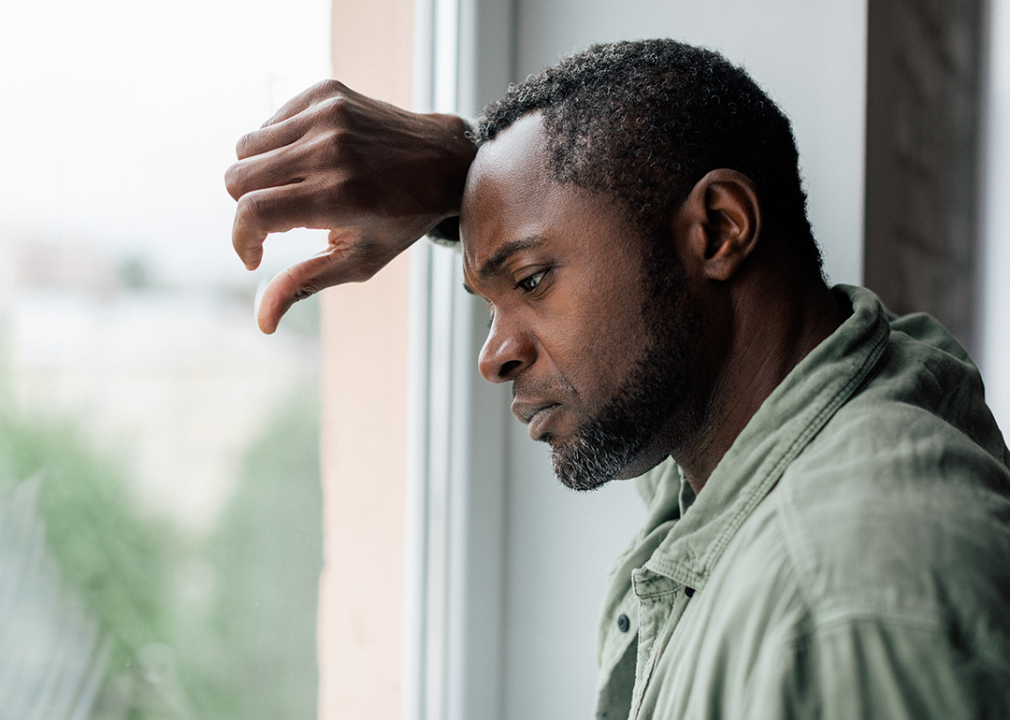
Discrimination against older people has become a pervasive part of American culture. Think birthday cards declaring someone "over the hill" and ads for "anti-aging" cosmetics.
Most older adults say they experience ageism daily, according to a 2019 survey of more than 2,000 people between 50 and 80 conducted by the University of Michigan.
Ageism, which includes stereotyping and discrimination based on age, is one of the most common forms of prejudice. A 2021 report from the World Health Organization found at least half of people are ageist against older people.
Counseling Schools examined peer-reviewed research and data from the World Health Organization and the American Psychological Association to understand the impact of ageism and what countries are doing to curb it as the older population grows.
Between 2010 and 2020, Americans over 65 grew the fastest since the 1890s, reaching 55.8 million, or 16.8% of the population. Globally, the United Nations Population Division projects the number of people over 65 to reach 1.6 billion by 2050.
Ageism can come in different forms and affects both old and young people. It occurs on all levels of society.
Institutional ageism refers to the laws, practices, and social norms of institutions that restrict or disadvantage people based on age. This kind of ageism can occur in employment, housing, and health care.
Interpersonal ageism refers to interactions that happen between two people, such as jokes that insinuate older people are out of touch or doubting a coworker's ability to use technology. Self-directed ageism happens when people are repeatedly exposed to ageist biases and then apply those negative beliefs to themselves.
These biases can have lasting mental and physical effects. The University of Michigan survey found older adults who experience ageism are more likely to report symptoms of depression and chronic health conditions such as heart disease or diabetes.
In 2020, the American Psychological Association updated its stance on ageism, one of the last "socially acceptable prejudices," to encourage psychologists to focus on this growing problem as people live longer and the older population increases.

The global life expectancy was 71.4 years in 2021, but healthy life expectancy in older age is more than the absence of disease. Things that impact healthy life expectancy include a proper diet and exercise, as well as social connections and having a purpose. People now spend nearly a decade of their lives in poor health.
Though the reason for ageism's negative health impacts is unknown, research has shown it is a chronic stressor that can impact the body.
With more than 140 published articles and over three decades of work, Becca Levy, a professor at Yale School of Public Health, has shown that beliefs about aging can reduce longevity and physical functions and increase the risk for cardiovascular events like strokes or heart attacks. Her 2002 longevity study, which followed residents older than 50 in Oxford, Ohio, found that beliefs about age can add or subtract as much as 7.5 years of life.
A study published in 2019 of more than 7,700 English adults over 50 found people who report experiencing ageism are more likely to say they are in poor health or have symptoms of depression. Social isolation among older people is associated with feelings of depression and a lower ability to accomplish daily tasks, according to research from the American Economic Association published in 2019, which examined people 55 and older in seven low- and middle-income countries in addition to the United States.
Ageism in health care settings can have devastating effects and lead to worse outcomes. This can range from blatant disrespect or abuse from care providers to discounting specific symptoms as part of the aging process.
Older adults routinely feel dismissed, resulting in less treatment, including for mental health. A report published in 2017 in the Journal of the American Geriatrics Society found people over 60 are less likely to receive a mental health evaluation even after going to the emergency department and being deemed a suicide risk.
According to University of Michigan researchers, lower-income adults and retirees are likelier to report ageism, feeding into the idea that older people don't contribute to society. Older women are also more likely to experience ageism than men. While women in the U.S. tend to live nearly six years longer, they may face double discrimination with ageism and sexism.
Ageism also intersects with other forms of stereotypes, prejudice, and bias, such as racism, ableism, and sexism. These intersections layer disadvantage over disadvantage, worsening one's health and well-being.
Discrimination against widows is an example of an intersection between ageism and sexism. Globally, widows—of which there are about 250 million in the world—are often subjected to banishment, theft of property, or oppressive customs disguised as "cleansing rituals."
Ageism is prevalent and insidious. In a review of 422 studies worldwide by researchers at the Yale School of Public Health, led by Levy, 96% showed evidence of ageism adversely affecting older people. These studies included over 7 million participants and are the most extensive examination of ageism's health consequences.
Ageist biases vary greatly among countries, and researchers are just beginning to explore the topic, according to WHO. However, its data from 57 countries suggest that low- and lower-middle-income countries have the highest rates.

As the world's older population continues to grow, so does the demand for mental health specialists. However, less than 2% of psychologists specialize in geropsychology, according to the American Psychological Association.
It's clear a holistic approach is needed, and countries and other organizations are stepping up to fill the void. According to WHO, over 60% of countries had some form of legal or administrative protection for older adults.
Earlier this year, the U.S. Health and Human Services Department updated the Older Americans Act, which provides community services to adults over 60 and offers state funding for programs that help residents live independently.
In Europe, the Age Friendly Ireland initiative works with local governments to increase accessibility, such as walkable streets, expanded transportation options, and fostering meaningful engagement. In Finland, the ombudsman for older people is an independent position that advocates for the rights of older residents in legislative decision-making.
With one of the world's oldest populations, Japan offers comprehensive health care to residents over 65. More than two decades ago, it implemented long-term care insurance which covers 90% of the medical expenses of those 75 and older. In 2021, Japan also appointed a "minister of loneliness," a cabinet position that works to combat the country's isolation crisis.
Efforts like these from around the world will become increasingly important. By 2050, 2 in 3 people globally will be at least 60 years old and living in low- and middle-income countries.
While the world has yet to face its old age, it needs to prepare to address the needs of older populations, whether it be promoting positive attitudes toward seniors or building supportive physical and social environments that enable people to lead meaningful lives despite lessened capacities.
Story editing by Carren Jao. Additional editing by Kelly Glass. Copy editing by Kristen Wegrzyn.
This story originally appeared on Counseling Schools and was produced and distributed in partnership with Stacker Studio.